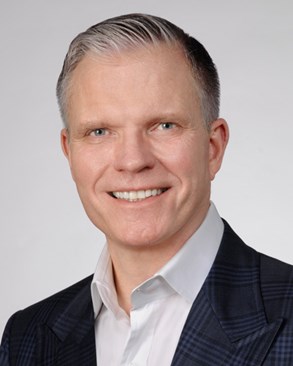5 minutes with... Keith Wetmore
 When did you decide to become a lawyer? Why?
When did you decide to become a lawyer? Why?
I lacked career imagination as I graduated from university. Law school seemed like a better bet than undergraduate job fairs, and the law seemed like clean work.
Starting out, what did you expect from a career in the law?
I figured it would allow me to wear suits to work while in the company of really smart people.
Has it lived up to your expectations?
Being a transactional lawyer was as much fun as I have ever had while being paid. Running a law firm is the best job ever, even if less fun. And I do get to wear suits, though I am generally the only one in our California offices who does.
How did you get into the areas of law you are known for today? By design? Chance? Both?
I became a transactional lawyer after being disenchanted during my clerkship with the shrillness of litigation discourse. From there, clients and mentors, severally, shaped my practice over time. I certainly did not become Chief Executive Partner of the firm through design; I was among the most surprised when my name was put forward.
What do you consider to have been your big break?
Being born to parents who adored me and convinced me I would excel at anything I wanted to do in life.
What differences do you see in today's legal market compared to when you started?
The profession was much more forgiving in 1980, in that many firms in many regions were defensible choices for major engagements for major corporations. That meant the standards of practice were not as high because the work was not highly concentrated and competition more diffuse. Today, for the most demanding, high-value work, there is a fairly short list of firms that are defensible hires if you are the general counsel of a Fortune 500 company. This helps explain why billing rates – for those types of engagements – have risen faster than other services and why the lives of big-firm lawyers are more demanding than ever.
What achievement are you most proud of?
During my terms as Chief Executive Partner, Morrison & Foerster was able to leverage its cultural strengths to accelerate its financial success. Nice guys can, in fact, finish first (or at least near the front of the pack), while still caring about collegiality, pro bono and diversity.
What do you consider your greatest failure or regret?
Not finishing David Foster Wallace’s Infinite Jest.
What have you enjoyed most during your career in the legal profession?
Working with uniformly smart colleagues every day. Compare notes with those in other careers: that generally won’t top their list.
And enjoyed least?
Timenotes, largely because they force you to confess how little you get done most days.
"The Supreme Court already took care of The Defense of Marriage Act for me."
What law would you change, abolish or create?
The Supreme Court already took care of The Defense of Marriage Act for me.
Who is your legal hero?
Marshall Small, a former Chair of Morrison & Foerster and our longtime general counsel, who uses his experience in the 1950s as the firm’s first Jewish lawyer to admonish his partners to be mindful of what a scary place a big law firm can be for those who may be, in his words, “just a little bit different.”
What career would you have in your second life?
I count myself lucky to have had at least three careers. First, 20 years as a practicing transactional lawyer. Second, 12 years building and running a billion-dollar business. And now my third act will include board service for some fascinating, fast-growing businesses.
What slogan would you like to be remembered by?
“He left places better than he found them.”
What advice would you give to any LGBT students who aspire to ultimately get into a BigLaw firm?
The word “integrity” has two shades of meaning, the first relating to one’s incorruptibility (which is the sense most commonly employed in professional settings) and the second to one’s wholeness or unitary nature. The two meanings inform each other.
Approaching one’s profession and one’s colleagues with any deception about who you are, and especially who you love, is at odds with your unitary nature and thus your integrity. Don’t do it. The costs will be high.